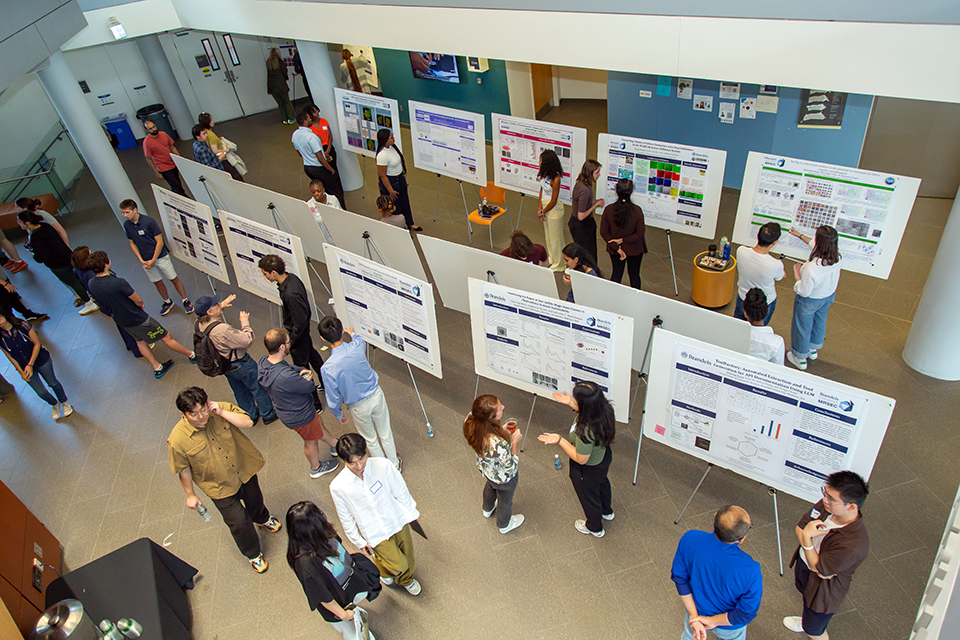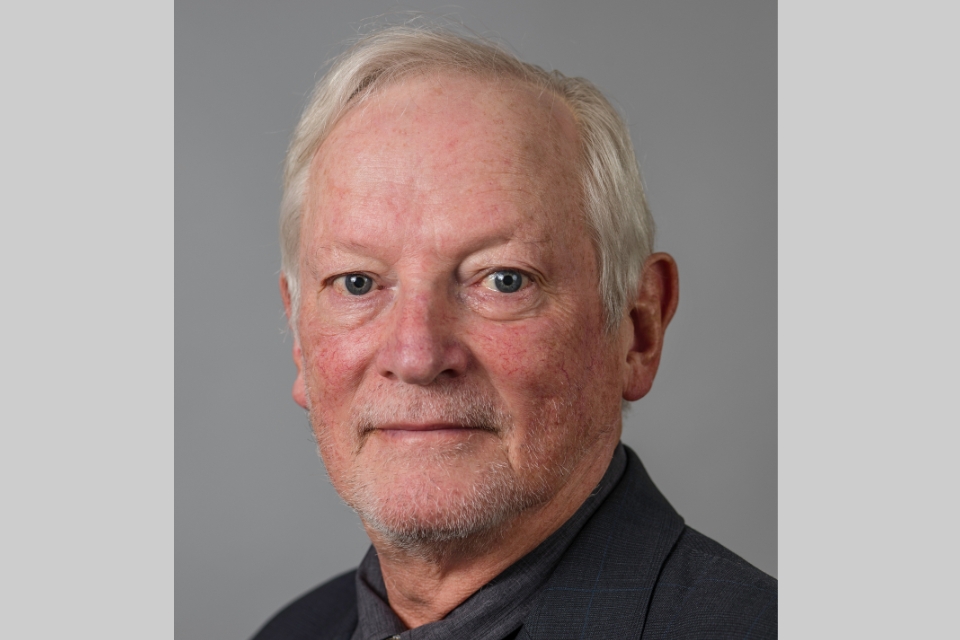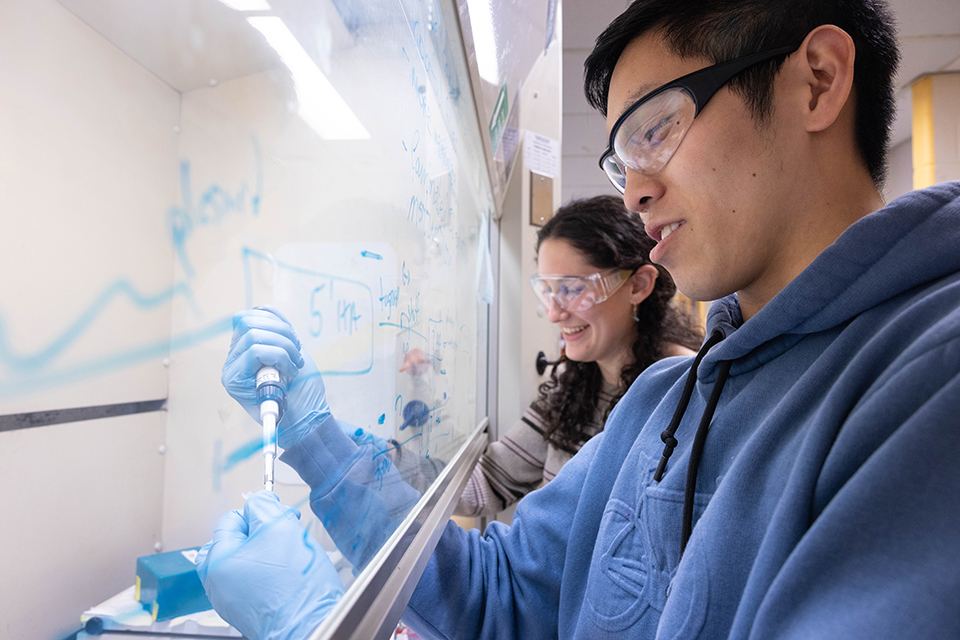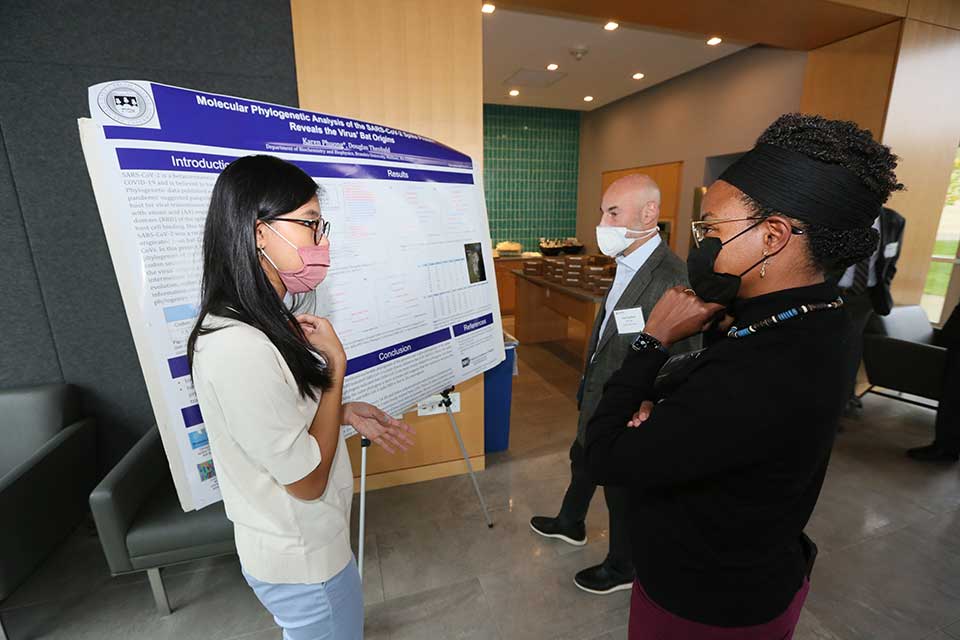Brandeis Alumni, Family and Friends
SciFest Highlights Summer Research by Brandeis Students
September 16, 2024
Alumni support is key to research opportunities.

The Shapiro Science Center buzzed with energy as over 100 undergraduate students presented their findings of months of intensive research at the 2024 edition of SciFest last month.
Many of the students had conducted research as part of Brandeis’ Summer Undergraduate Research Fellowships (SURF), which provides students with a $6,000 stipend and a summer of hands-on research experience with faculty in the university’s labs.
Research topics ranged from increasing productivity with artificial intelligence to potential cures for cancer with presenters engaging with visitors, discussing their results and networking within the science community.
Each student presented a poster, a visual representation of their findings, packed with bullet-pointed facts, diagrams and photos.
Recognizing that his home country of Brazil has vast renewable energy potential, Gustavo Sigelmann ’26 zeroed in on research that could demonstrate a viable energy alternative to fossil fuels. His analysis examined the capability of a number of compounds to retain solar heat in organic molecules for future use. While many were unsuitable due to decomposition, the research uncovered compounds with promising potential to retain heat. That could provide incredibly useful solar energy to heat homes at night and during the colder months.
“I want to work with renewable energy in grad school, so this research provided some invaluable groundwork and experience,” he says.
Yiang Jiang, a biochemistry student who examined how cells fix themselves, including the proteins that make that process possible. That repair pathway could provide a groundwork for curing diseases like cancer.
Cell operation and its implication for curing disease was a frequent theme of projects at SciFest. Gauri Gajeshwar ’25 looked at microtubules, tiny structures inside cells, and how they organize themselves in crowded environments.
“Not only has this experience taught me technical skills like how to use state-of-the-art lab equipment, but it teaches how to come up with creative scientific projects that address a specific question,” she said.
Some students conducted research that took advantage of rapid advancements in artificial intelligence. Qiuyang Wang ’25 presented a project based on automating the generation of application programming interface (API) tools. Such tools allow different software to communicate and exchange data with each other. Wang said he enjoyed being able to showcase his research publicly and called the undergraduate research fellowship “inspiring and engaging.”
“The research fellowship convinced me that I loved my major and that this work was meaningful,” he said.
The SURF program depends on the support of alumni and friends. Since the program’s inception, dozens of donors have supported the program – ranging from $100 to $50,000. For example, Frederick Alt ’71 enjoys helping to provide research opportunities for students.
“It’s a great experience for undergraduates to be able to work in a real laboratory, to contribute and be part of a research team,” Alt said in an interview last year.
- Dave Marino, GSAS MA'19









